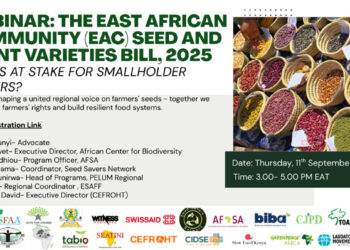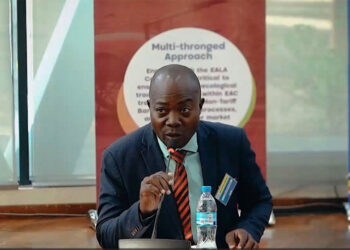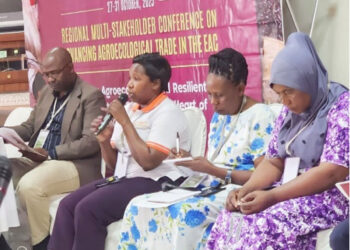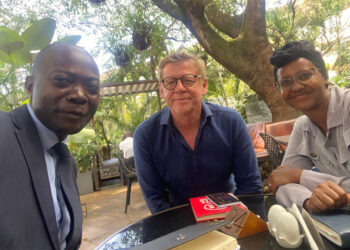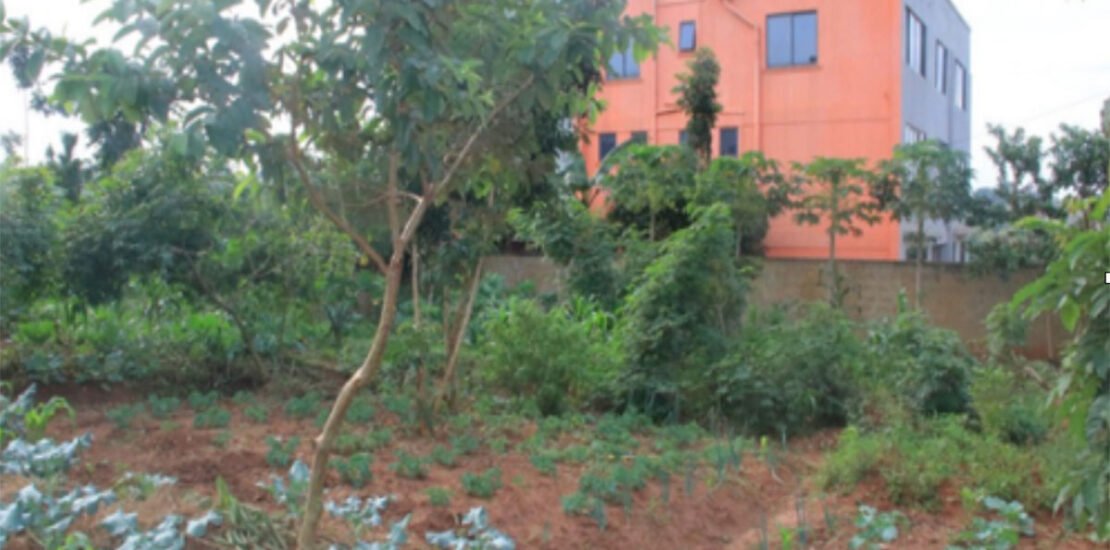
CEFROHT Agroecology Learning Centres
The Center for Food and Adequate Living Rights (CEFROHT) has set up four (4) Community Agroecology Learning Centers in Kiboga, Wakiso, Naggalama, and Mukono districts as part of its larger mission to advance agroecology and the right to adequate food in Uganda. These centers serve as the foundation for enlisting local communities in capacity building in agroecology practices and ecological transformation, and are vibrant community hubs where smallholder farmers, particularly women and youth, learn, experiment, innovate, and share indigenous knowledge on agroecological practices that support food sovereignty, health, biodiversity, and local economies.
CEFROHT carries out action-research with the full participation of smallholder farmers in order to develop context-specific and evidence-based farmer training materials, as well as production and marketing strategies and plans for agroecology products and produce for economic scale-out.
The Agroecology Learning Centers are designed through bottom-up consultations with farmers, community leaders, and local governments. They are established in rural communities and act as practical training grounds for agroecology techniques, innovation spaces for farmer-to-farmer exchange of traditional knowledge and local technologies. They are incubation centers for new ideas on sustainable farming, livelihoods, and eco-enterprise, platforms for legal literacy, where farmers are educated about their rights as rights holders.
Smallholder farmers convene at these centers periodically to take part in policy discussions, field trips, mentorships, trainings, knowledge-sharing forums, and community seed fairs. Farmers gain practical agroecology skills in sustainable vegetable and staple crop production, agroforestry, growing herbs and spices for nutrition and health, managing organic soil fertility, integrated pest management, seed selection for seed sovereignty, and biodiversity conservation through experiential learning and participatory training methods.
Training in animal husbandry and economic diversification through dairy, apiculture, and cash crops including coffee, bananas, and pastures are provided too.
Across the Agroecology learning centers in Kiboga, Mukono, and Wakiso, more than 1,000 smallholder farmers have received training thus far. These farmers are now implementing agroecological practices in their own farms and homesteads, acting as peer trainers and model farmers in rural communities, encouraging other farmers to embrace sustainable practices, taking part in local policy and food governance discussions, and sharing their experiences with development partners, researchers, and policymakers.
Farmers are also learning about their right to land, particularly for women and youth, the impact of trade and seed laws on their farming systems, how to interact with duty bearers, local governments, and policymakers to assert their rights, and their right to adequate food, water, and a clean environment.
The long-term goals include expanding these learning centers to all districts in Uganda, creating mobile and digital learning resources, and connecting agroecology expertise to platforms for policy advocacy, cooperatives, and markets. CEFROHT’s dedication to community-driven agroecology, based on knowledge, rights, and ecological integrity, is demonstrated by the learning center initiative.
CEFROHT is fostering a movement of ecological farmers, citizen agency, and rights-holders through the learning centers, who are planting the seeds of justice, resiliency, and food sovereignty throughout Uganda.
-
Our Seeds, Our Sovereignty: CSOs Push Back on Commercial Bias In The EAC Seed Bill, 2025
CEFROHT joined EAC regional CSO partners in a regional webinar on the EAC Seed and Plant Varieties Bill, 2025, drawing over 100 participants from civil society, farmer networks, legal experts, researchers, and advocacy groups across the EAC region. Discussions centered on the draft Bill’s bias towards commercial seed systems and its failure to uphold the
November 19, 2025 -
EALA Pressed to Act: CEFROHT Highlights Rising Threats to Indigenous Seeds and Regional Food Security.
During a high-level plenary session at the East African Legislative Assembly (EALA) in Tanzania, the Executive Director CEFROHT delivered a powerful call to action on the future of East Africa’s food system. With urgency and conviction, he challenged regional lawmakers to enact robust policies that safeguard indigenous seeds, regulate agrochemical use, and strengthen agroecology as
November 19, 2025 -
Championing Agroecological Cross-Border Trade in East Africa: CEFROHT Calls for Just and Inclusive Food Systems.
CEFROHT joined regional partners at the Regional Multi-Stakeholder Conference on Advancing Agroecological Trade in the East African Community (EAC), convened by Alliance for Food Sovereignty in Africa (AFSA) in Jinja under the theme “Placing Agroecological and Resilient Food Systems Trade at the Heart of the EAC.” The conference brought together farmers’ networks, traders, policymakers, border
November 19, 2025 -
CEFROHT partners with Heinrich Böll Foundation to advance regional agroecology law and policy in the EAC.
CEFROHT strengthened its advocacy for a sustainable and more just food system across the East African Community (EAC). Alongside high-level policy dialogues, CEFROHT held strategic discussions with the Heinrich Böll Foundation to explore collaborative avenues for enhancing regional agroecology policy and legal frameworks. The conversations highlighted the need for a coherent regional legislative and governance
November 19, 2025


